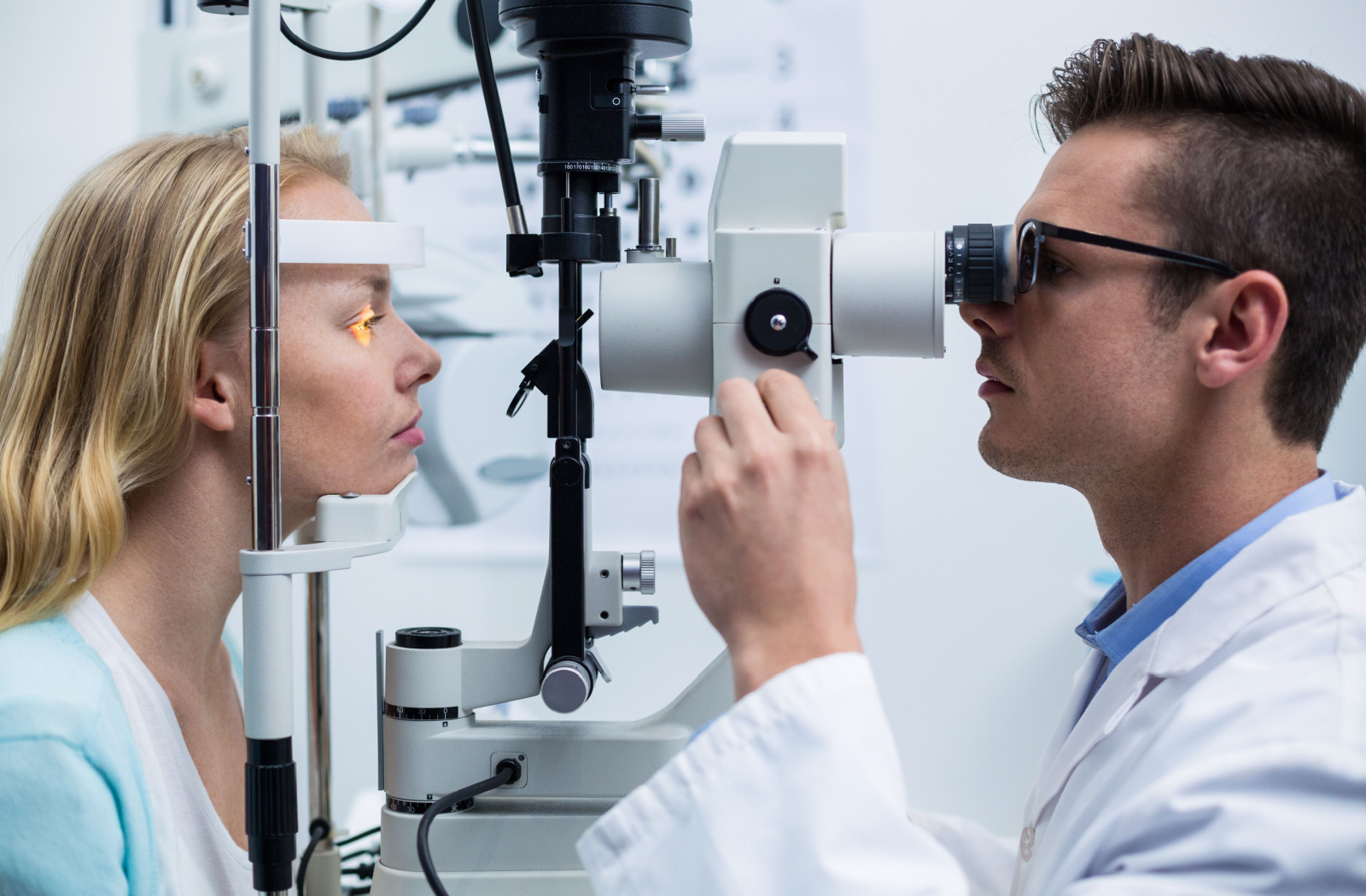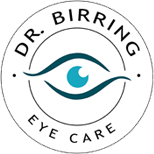Dry eye disease can cause discomfort, irritation, and, in severe cases, even lead to blurred vision. Dry eyes and blurry vision can significantly affect your daily routine, and if left untreated, dry eye disease can cause damage to your eyes.
It is important to take action to relieve the symptoms of dry eye and maintain your eye health. Some of the remedies we recommend for dry eyes include:
- Artificial tears
- Omega-3 supplements
- Warm compresses
- Cynosure radiofrequency treatments
- Lid hygiene
Remember, when you’re experiencing dry eyes and blurry vision, one of the best first steps you can take to address these symptoms is to get your eyes examined by an eye care professional.
What Causes Dry Eyes & Blurry Vision?
Before we get into our top 5 remedies for relief from dry eyes, it can be helpful to know what causes dry eyes and blurry vision. One of the main culprits is tear film dysfunction—changes to the natural layer of tears that helps keep your eyes hydrated and protected. Changes to your tear film could be caused by several factors, including hormonal changes, autoimmune disease, inflamed eyelid glands, or allergic eye disease.
Then, there’s contact lens use, which can trigger both dry eyes and blurry vision. And if you’re not staying hydrated enough, that could lead to decreased tear production as well. Also, certain underlying conditions like rheumatoid arthritis can contribute to dry eye syndrome.
These are just some possible causes of dry eyes. If you’re experiencing dry eye symptoms, it’s a good idea to consult an eye care professional. We can provide a proper diagnosis and a personalized treatment plan.
Our 5 Recommended Dry Eye Treatments
Artificial Tears
Over-the-counter artificial tears can be an easy and effective way to soothe dry, irritated eyes. Artificial tears are designed to replicate natural tears and provide relief from dryness, redness, and burning sensations. You should always follow your eye doctor’s guidance for using eye drops and artificial tears.
Omega-3 Supplements
Omega-3 supplements can do wonders for dry eyes. And, in addition, they have many heart benefits. It isn’t new knowledge that upping the intake of omega-3 fatty acids can lessen symptoms of dry eyes. So, it wouldn’t hurt to consider taking a supplement or increasing your fish consumption for the comfort of your eyes!
Warm Compress Eye Masks
Treating your dry eyes with a warm compress can help improve your tear quality and eye comfort. It can add moisture, ease discomfort, and clear up any blockages in the glands that make the oil layer of your tears.
Cynosure Radiofrequency Treatments
Cynosure’s radiofrequency treatment can do wonders for dry eyes. The heat from radiofrequency can help clear blockages in the glands around your eyes, making it easier for tears to hydrate your eyes. Plus—it doubles as an anti-aging treatment.
Eyelid Hygiene
Taking good care of your eyelids can help if you’re experiencing dry eyes. It’s something you can easily do at home, too. All you need is a clean, warm washcloth and some gentle soap.
Other Tips for Dry Eyes
While you can get support for dry eyes from the treatments above, there are also certain lifestyle changes you can make that may help prevent and reduce your dry eye symptoms. Some of the habits below may be effective additions to your daily routine.
Remember to Blink
One of the common causes of dry eyes is prolonged screen time, which can lead to less blinking. Blinking helps spread your tear film across your eye’s surface, providing moisture and protection. Making a conscious effort to blink more often may help reduce dryness and increase your eye’s lubrication level.
Stay Hydrated
Staying hydrated can be crucial for maintaining your eye health. Your eyes depend on sufficient hydration to function properly. If you’re not drinking enough water each day, you might experience dry eye symptoms like redness, burning sensations, and even blurred vision.
While drinking plenty of water can help alleviate dry eyes, it’s also possible to over-hydrate, which can cause its own set of issues. So, it’s all about finding the right balance. The general guideline is to drink about 3–4 litres of water each day to help keep your body and eyes well-hydrated.
Protect Your Eyes in Dry, Windy Conditions
Windy weather conditions, especially those with low humidity, can really take a toll on your eyes and contribute to dry eye symptoms. When you’re heading outside in these conditions, it’s a good idea to wear sunglasses. They can work as a barrier between your eyes and the environment, protecting your eyes from wind and dust that might worsen dryness.
And what about when you’re indoors? Using a humidifier can add some much-needed moisture back into the air to help prevent uncomfortable symptoms like burning sensations and blurred vision.
Avoid Forced Air from Air Conditioning & Heating
Dry eye disease can be influenced by your environment. If you’re working in an office with air conditioning or under a fan, the constant airflow can dry out your eyes, leading to discomfort and potentially blurred vision.
Adjusting the direction of fans or air conditioners so they don’t blow directly into your eyes may help alleviate these symptoms. You may also want to reduce the power of the heating in your car during cool weather and avoid sitting near heating vents when possible.

Your Guide to Soothing Dry Eyes & Clearing Blurry Vision
Dry eyes and blurry vision can be challenging to deal with, but it is essential to take care of your eyes to maintain optimal eye health. While dry eye disease can cause blurry vision, it’s not the only cause. Getting a clear diagnosis is crucial for following the right treatment plan.
Remember, your eyes are an essential part of your body. Think of them as a delicate camera that requires proper care and maintenance. If you experience chronic dry eyes or blurry vision, we recommend scheduling an eye exam with our team at Birring Eyecare. Book your appointment today.



